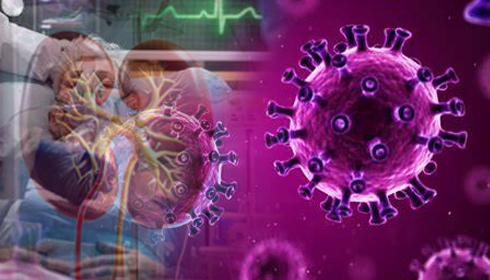
Study Reveals COVID-19’s Time-Varying Risk to Kidney Health
In an interesting development, experts at West China Hospital, Sichuan University, have conducted a new study that uncovers noteworthy data indicating a time-varying relationship between COVID-19 and acute kidney diseases (AKD), including acute kidney damage. The study, coordinated by Dr. Li Chunyang and Dr. Zeng Xiaoxi from the West China Biomedical Big Data Centre, was recently published in Health Data Science and provides critical insights into how COVID-19 impacts the kidneys in the first few weeks after infection.
Although COVID-19 is commonly associated with respiratory problems, there is mounting evidence that it also impacts other organs, such as the kidneys. The study focused on the changing risks of AKD over time and used data from the UK Biobank, a large-scale biological database. The findings advance our understanding of COVID-19's larger ramifications for organ systems other than the lungs.
"Our research highlights the time-varying risk of acute kidney disorders in COVID-19 patients, particularly in the first three weeks following infection," noted Dr. Li Chunyang, a research associate at the West China Biomedical Big Data Centre. "We observed that the hazard effects peak in the second week post-infection and decline by the fourth week."
The study compared 10,121 COVID-19 patients to 29,004 historical controls with no history of COVID-19. We adjusted the data for age, gender, deprivation index, and hospitalisation status. The risk of AKD was highest in the second week after infection, with a hazard ratio of 12.77 (95% confidence interval, 5.93–27.70). This was found using a conditional and time-varying Cox proportional hazard regression model. The risk decreased to a hazard ratio of 2.28 (95% confidence interval: 0.75-6.93) by the fourth week.
The study's attention to the severity of COVID-19 and its link to kidney injury is an important factor. Only patients with moderate to severe COVID-19 were at high risk for AKD, whereas those with minor symptoms were not as vulnerable. "This observation reinforces the need for targeted monitoring of kidney function, particularly in patients with severe COVID-19," stated Dr. Zeng Xiaoxi, an associate professor in the Nephrology Department at West China Hospital.
The researchers also conducted a one-sample Mendelian randomisation study to investigate the causal relationship between COVID-19 and AKD. They identified a short-term causal effect, especially in the first week after infection. This supports the hypothesis that COVID-19's immediate influence on kidney health is time-sensitive and focused during the disease's acute phase.
One of the more general consequences of these discoveries is their potential impact on managing late COVID, a syndrome characterised by chronic health concerns even after COVID-19's acute phase has ended. Given that the study found a significant but transient risk of AKD in the first weeks of infection, doctors may implement more targeted monitoring methods for kidney function in COVID-19 patients, especially during the critical early period of infection.
The study also suggests crucial considerations for healthcare providers who manage COVID-19 patients. Dr. Li Chunyang emphasized that medical teams should be cautious in monitoring renal function, particularly in patients with moderate to severe COVID-19, because the risk of kidney injury can rise suddenly in the first three weeks.
"Understanding the time-dependent nature of these risks could help guide clinical management and follow-up strategies," according to Dr. Li. This knowledge may lead to earlier therapies, decreasing the long-term burden of renal impairment in recovered COVID-19 patients. Given the potential long-term consequences of AKI, early detection and treatment may help to prevent the development of chronic renal problems following COVID-19.
Although the work sheds light on the relationship between COVID-19 and AKD, many concerns remain, particularly about the underlying molecular pathways that link the virus to kidney injury. As Dr. Zeng stated, "The molecular processes underlying the link between COVID-19 and renal injury are unknown. Our future research will concentrate on explaining these pathways and establishing causation, which may open the road for tailored therapies."
The team is now prepared to expand their research to East Asian populations and investigate the genetic and environmental factors that may influence susceptibility to AKD following COVID-19. This could help to refine our understanding of how COVID-19 affects kidney health in diverse groups, potentially leading to region-specific health guidelines.
The outcomes of this study highlight the importance of prompt and targeted therapies in controlling kidney health in COVID-19 patients, particularly during the first few weeks of infection. As COVID-19 continues to affect worldwide populations, understanding its larger health implications, such as its effects on the kidneys, is critical for creating effective treatment techniques. This study not only contributes to the growing body of knowledge about COVID-19's systemic effects, but it also emphasises the significance of monitoring kidney function as part of post-COVID care regimens.